-
 Bitcoin
Bitcoin $87,545.1219
3.45% -
 Ethereum
Ethereum $1,646.3284
3.45% -
 Tether USDt
Tether USDt $1.0000
0.00% -
 XRP
XRP $2.1348
3.49% -
 BNB
BNB $604.7726
1.77% -
 Solana
Solana $140.5021
0.93% -
 USDC
USDC $1.0000
0.00% -
 Dogecoin
Dogecoin $0.1623
3.77% -
 TRON
TRON $0.2449
0.84% -
 Cardano
Cardano $0.6469
3.87% -
 Chainlink
Chainlink $13.5861
3.80% -
 UNUS SED LEO
UNUS SED LEO $9.4556
1.35% -
 Avalanche
Avalanche $20.7131
5.22% -
 Stellar
Stellar $0.2598
6.49% -
 Toncoin
Toncoin $3.0448
2.46% -
 Shiba Inu
Shiba Inu $0.0...01268
3.21% -
 Sui
Sui $2.2732
7.10% -
 Hedera
Hedera $0.1736
6.15% -
 Bitcoin Cash
Bitcoin Cash $342.5799
2.42% -
 Polkadot
Polkadot $3.9508
2.11% -
 Litecoin
Litecoin $81.2563
6.32% -
 Hyperliquid
Hyperliquid $18.3746
3.12% -
 Bitget Token
Bitget Token $4.4978
0.24% -
 Dai
Dai $1.0000
0.00% -
 Ethena USDe
Ethena USDe $0.9992
0.00% -
 Pi
Pi $0.6383
1.50% -
 Monero
Monero $216.3140
1.01% -
 Uniswap
Uniswap $5.4716
4.19% -
 Pepe
Pepe $0.0...07865
6.20% -
 Aptos
Aptos $5.1991
6.34%
UNI coin detailed buying, selling and trading tutorial (with pictures and text)
To trade UNI, users can simply create an account on a supported crypto exchange, find the UNI pair, specify the desired amount and price, review details, submit the order, and either buy or sell the UNI, all while keeping in mind security considerations like 2FA and hardware wallets.
Oct 01, 2024 at 06:48 pm
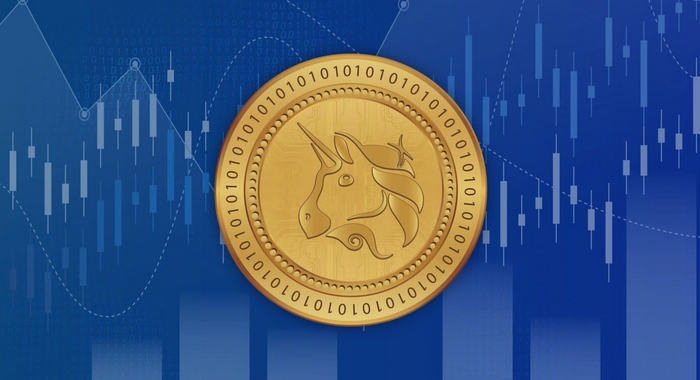
UNI Coin Detailed Buying, Selling, and Trading Tutorial
1. Get a Crypto Exchange Account
The first step is to create an account on a crypto exchange that supports UNI. Some popular options include Binance, Coinbase, and Gemini.
2. Fund Your Account
You need to fund your exchange account with either fiat currency (such as USD or EUR) or another cryptocurrency (such as Bitcoin or Ethereum).
3. Find the UNI Pair
Once your account is funded, search for the UNI pair you want to trade. For example, if you want to buy UNI with USD, you would search for the "UNI/USD" pair.
4. Place an Order
After finding the UNI pair, you can place an order to buy or sell UNI. You need to specify the amount of UNI you want to trade and the price you are willing to pay or receive.
5. Review and Confirm
Before submitting your order, review all the details to make sure they are correct. Once you are satisfied, click the "Submit" or "Buy/Sell" button.
6. Monitor Your Order
Your order will be added to the exchange's order book. You can view the status of your order and adjust it if necessary.
7. Settle Your Order
When your order is executed, the UNI or fiat currency will be added or removed from your exchange account. You can settle your order and withdraw your crypto or fiat currency.
8. Store Your UNI Safely
Once you have purchased UNI, you should store it securely in a hardware wallet. This will help protect your cryptocurrency from theft or hacking.
9. Sell or Trade Your UNI
When the time comes, you can choose to sell or trade your UNI on the exchange. Simply place a sell or trade order and follow the instructions provided.
Additional Tips:
- Do your research and choose a reputable crypto exchange.
- Set up two-factor authentication (2FA) for enhanced security.
- Be aware of the price volatility of UNI before you invest.
- Consult financial experts if you have questions.
Disclaimer:info@kdj.com
The information provided is not trading advice. kdj.com does not assume any responsibility for any investments made based on the information provided in this article. Cryptocurrencies are highly volatile and it is highly recommended that you invest with caution after thorough research!
If you believe that the content used on this website infringes your copyright, please contact us immediately (info@kdj.com) and we will delete it promptly.
- Remittix (RTX) Rips It in Presale Action As Investors Await the Next Market Movements
- 2025-04-21 17:00:12
- 9 Rare Coins That Could Make You a Millionaire
- 2025-04-21 17:00:12
- Voxies (VOXEL) Token Price Soars 200% After Bitget (BITGET) Bot Glitch Allows Users to Scoop Free Money
- 2025-04-21 16:55:12
- Despite Growing Frenzy Over XRP ETFs, BlackRock Remains Silent
- 2025-04-21 16:55:12
- Sui [SUI]'s Ecosystem Continues to Gain Impressive Traction, Total Accounts Soar Past 150 Million
- 2025-04-21 16:50:13
- Coins Worth Millions
- 2025-04-21 16:50:13
Related knowledge
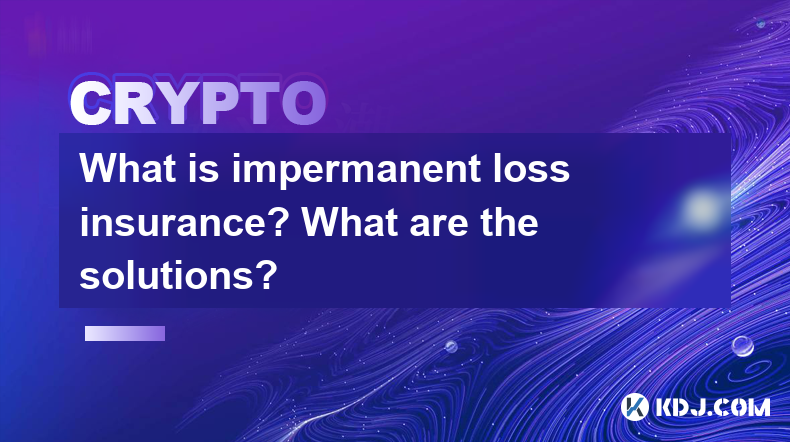
What is impermanent loss insurance? What are the solutions?
Apr 12,2025 at 01:14am
What is Impermanent Loss Insurance? What are the Solutions? Impermanent loss is a significant concern for liquidity providers in decentralized finance (DeFi) platforms. It occurs when the price of tokens in a liquidity pool changes compared to when they were deposited, leading to a potential loss if the provider decides to withdraw their liquidity. To m...
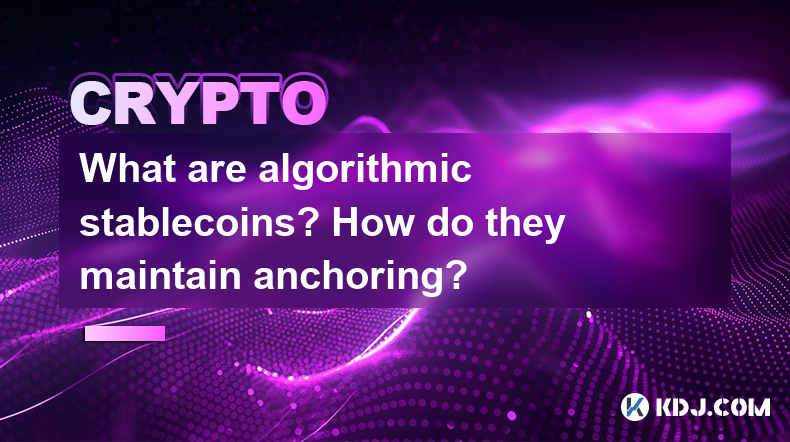
What are algorithmic stablecoins? How do they maintain anchoring?
Apr 12,2025 at 11:35am
Algorithmic stablecoins represent a fascinating and innovative segment within the cryptocurrency ecosystem. These digital assets are designed to maintain a stable value, typically pegged to a fiat currency like the US dollar, through the use of algorithms rather than traditional collateral. This approach distinguishes them from other types of stablecoin...
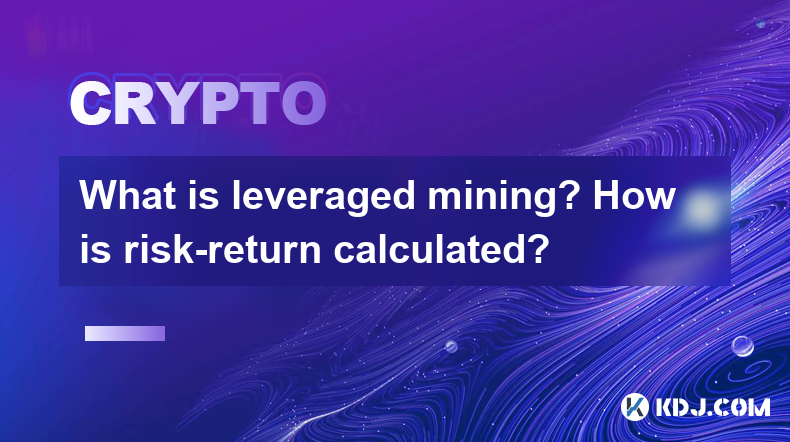
What is leveraged mining? How is risk-return calculated?
Apr 11,2025 at 04:07pm
What is Leveraged Mining? How is Risk-Return Calculated? Leveraged mining is a strategy used in the cryptocurrency space where miners borrow funds to increase their mining capacity and potential returns. This approach can amplify both profits and losses, making it a high-risk, high-reward endeavor. Understanding how to calculate the risk and return asso...
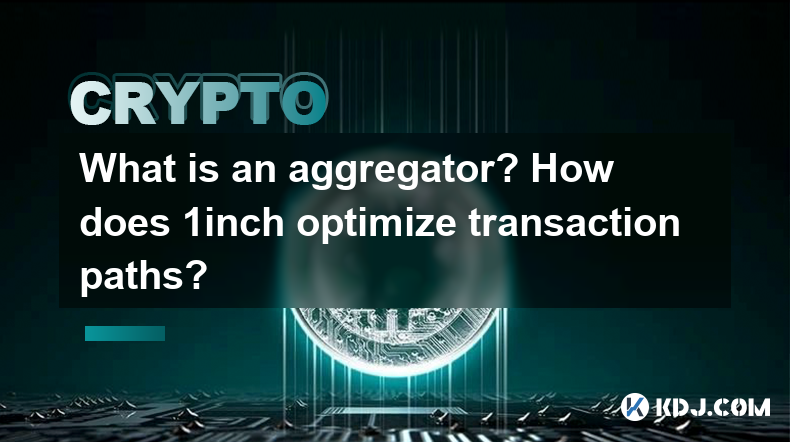
What is an aggregator? How does 1inch optimize transaction paths?
Apr 12,2025 at 05:00pm
An aggregator in the cryptocurrency space is a tool that compiles and compares data from multiple decentralized exchanges (DEXs) to find the best possible trading routes and prices for users. Aggregators are essential for traders looking to optimize their transactions, as they can automatically search through various liquidity sources to ensure the most...
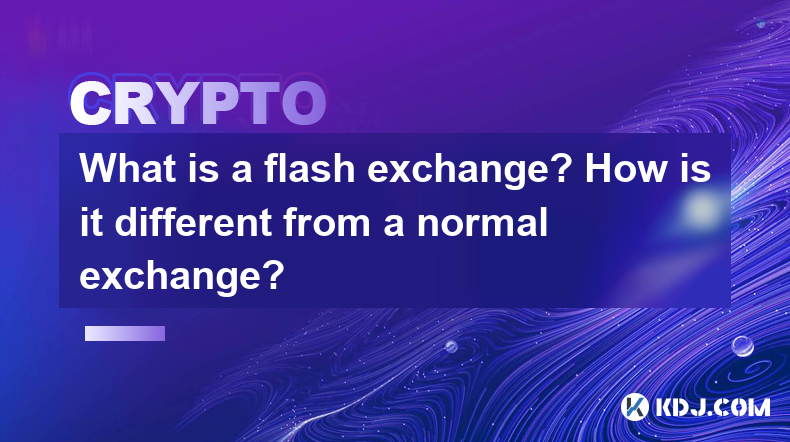
What is a flash exchange? How is it different from a normal exchange?
Apr 16,2025 at 03:43pm
A flash exchange, also known as a flash swap, is a relatively new concept within the cryptocurrency space that has gained significant attention due to its innovative approach to trading. Unlike traditional exchanges, flash exchanges leverage the power of decentralized finance (DeFi) protocols to enable instant, collateral-free trades. In this article, w...
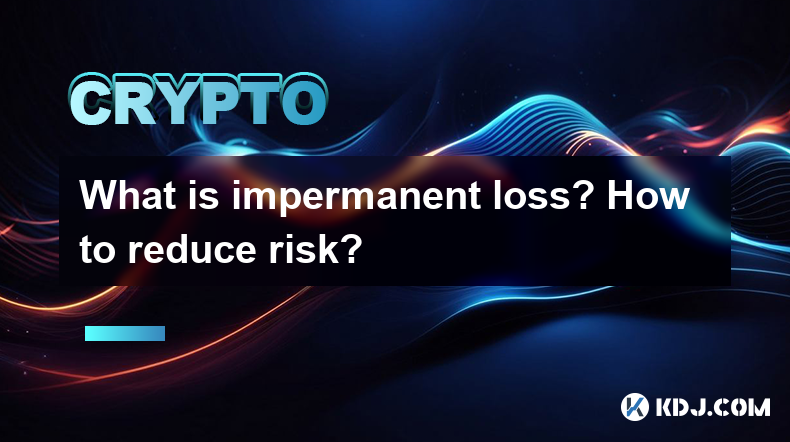
What is impermanent loss? How to reduce risk?
Apr 16,2025 at 11:14pm
What is Impermanent Loss? How to Reduce Risk? Impermanent loss is a term that frequently surfaces in the world of decentralized finance (DeFi), particularly when discussing liquidity provision on automated market makers (AMMs) like Uniswap or SushiSwap. Understanding this concept is crucial for anyone looking to engage in liquidity provision, as it dire...

What is impermanent loss insurance? What are the solutions?
Apr 12,2025 at 01:14am
What is Impermanent Loss Insurance? What are the Solutions? Impermanent loss is a significant concern for liquidity providers in decentralized finance (DeFi) platforms. It occurs when the price of tokens in a liquidity pool changes compared to when they were deposited, leading to a potential loss if the provider decides to withdraw their liquidity. To m...

What are algorithmic stablecoins? How do they maintain anchoring?
Apr 12,2025 at 11:35am
Algorithmic stablecoins represent a fascinating and innovative segment within the cryptocurrency ecosystem. These digital assets are designed to maintain a stable value, typically pegged to a fiat currency like the US dollar, through the use of algorithms rather than traditional collateral. This approach distinguishes them from other types of stablecoin...

What is leveraged mining? How is risk-return calculated?
Apr 11,2025 at 04:07pm
What is Leveraged Mining? How is Risk-Return Calculated? Leveraged mining is a strategy used in the cryptocurrency space where miners borrow funds to increase their mining capacity and potential returns. This approach can amplify both profits and losses, making it a high-risk, high-reward endeavor. Understanding how to calculate the risk and return asso...

What is an aggregator? How does 1inch optimize transaction paths?
Apr 12,2025 at 05:00pm
An aggregator in the cryptocurrency space is a tool that compiles and compares data from multiple decentralized exchanges (DEXs) to find the best possible trading routes and prices for users. Aggregators are essential for traders looking to optimize their transactions, as they can automatically search through various liquidity sources to ensure the most...

What is a flash exchange? How is it different from a normal exchange?
Apr 16,2025 at 03:43pm
A flash exchange, also known as a flash swap, is a relatively new concept within the cryptocurrency space that has gained significant attention due to its innovative approach to trading. Unlike traditional exchanges, flash exchanges leverage the power of decentralized finance (DeFi) protocols to enable instant, collateral-free trades. In this article, w...

What is impermanent loss? How to reduce risk?
Apr 16,2025 at 11:14pm
What is Impermanent Loss? How to Reduce Risk? Impermanent loss is a term that frequently surfaces in the world of decentralized finance (DeFi), particularly when discussing liquidity provision on automated market makers (AMMs) like Uniswap or SushiSwap. Understanding this concept is crucial for anyone looking to engage in liquidity provision, as it dire...
See all articles






















































































